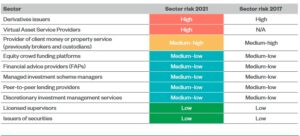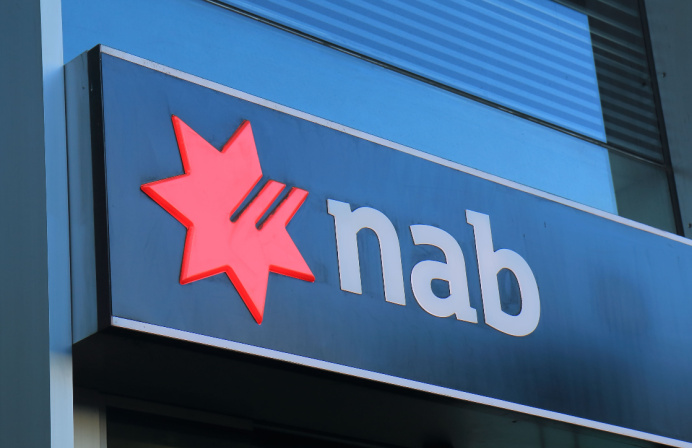
New Zealand’s financial regulator, the Financial Markets Authority (FMA), has added cryptocurrency service providers to its high-risk category for meeting anti-money laundering and counter-terrorism financing (AML/CTF) obligations.
In the latest update to the FMA’s Anti-Money Laundering and Countering Financing of Terrorism (AML/CFT) Sector Risk Assessment, last published in 2017, only derivatives issuers (DI’s) and cryptocurrency service providers were rated in the high category.
While DIs appeared in the FMA’s previous risk assessment, it is the first time that virtual asset service providers (VASPs) – which facilitate cryptocurrency, token, or crypto-asset transactions – have featured in the list.
Beyond the addition of VASPs, no change has been made to the list or to the risk categories since 2017.
Equity crowd funders, financial advice providers, and peer-to-peer lending providers were all categorised in the medium-to-low risk, while providers of client money and property services continue to be rated as ‘medium-high’ risk.
“[Virtual assets] are vulnerable to misuse by criminals to launder money and fund terrorism as they allow greater levels of anonymity and have global reach, making it easier for cross-border payments to be made, and can be traded easily,” the FMA said in its report.
“This has led to the inherent ML/TF risk of VASPs being assessed as ‘high’.”
The four risk categories range from Low, Medium-Low, Medium-High, and High.

FMA’s AML/CTF sector risk categories for 2021
James Greig, FMA Director of Supervision, noted that “since our last assessment the risks of virtual assets, particularly cryptocurrencies, have become more prominent”.
“Virtual assets allow for greater levels of anonymity and have global reach, making cross-border payments easy.”
Most VASPs are regulated under the Department of Internal Affairs (DIA), with only a small number falling under the umbrella of the FMA.
The FMA has urged local VASPs to review their obligations, provided by the DIA, under the AML/CFT Act to which they are bound.
VASPs can include: virtual asset exchanges, that is those providing a digital online platform that facilitates virtual asset transfers and exchanges; virtual asset wallet providers, providing storage for virtual assets; virtual asset broking services; initial coin offering providers; and those that provide investment opportunities in virtual assets.
The terrorism financing threat faced by New Zealand is rated ‘medium’ by international standards.
The 2019 National Risk Assessment from the New Zealand Financial Intelligence Unit (FIU) reports that from 30 June 2013 (when the AML/CFT Act commenced), there have been 330 Suspicious Activity Reports (SARs) received by the FIU that indicated a possible relation to terrorism financing. This is 0.46 per cent of all SARs received.
For the 2017-18 period, the NRA recorded upwards of 10,000 Suspicious Transaction Reports together valued at around $6 billion.





